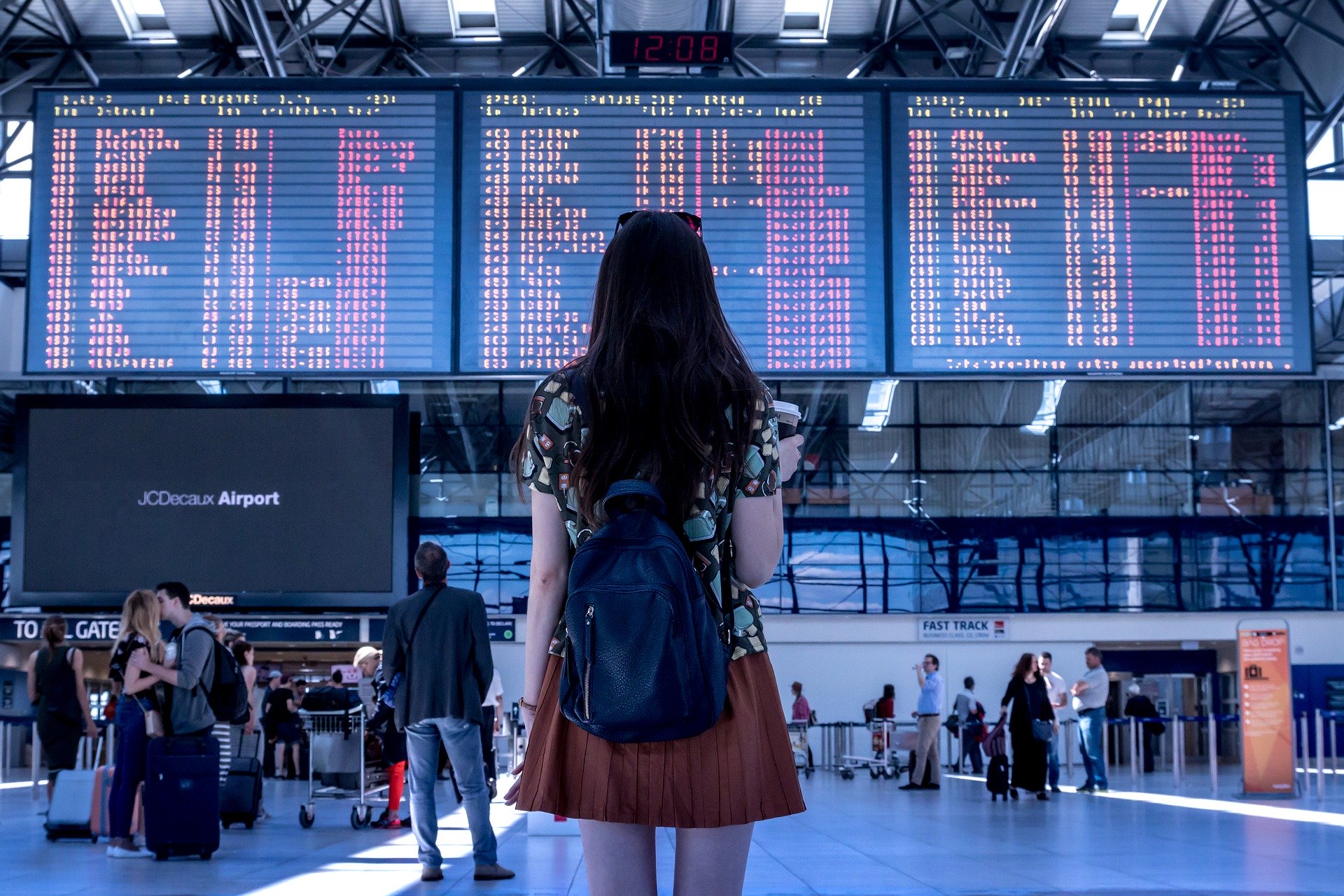When Corona was initially mentioned in the news, it didn’t dominate in conversations or students’ spare time. Once Kick Off finished, exchange students presumed that it was going to be an ordinary semester abroad. They thought of having fika with their new friends, long study sessions at the library and having lunch in one of the campus cafés between classes. Instead, a series of spontaneous farewells occurred, the evenings became quieter while uncertainty arose. A pandemic isn’t part of what one takes into consideration when applying to go on exchange.
Although some students were called home by their university, government or family, some decided to stay. “It’s a gamble”, Thomas Schguanin, 24, said. He was suggested by his home university in Vienna to come back in March, then advised by the Austrian government to stay in his host country and to follow the recommendations there. Instead of returning to his hometown in Tirol, the region near Italy where Corona found its roots in Austria, he decided to remain in Jönköping.
When the crisis escalated, Luke Sweetnam, 20, received a message from his home university in mid-March saying that his grant for studying in Sweden might be cancelled if he wouldn’t return. The main consequence being cancelled flights to Australia and the lack of money to sustain himself abroad. “It seemed kind of crazy to go back but also crazy to stay. I’m not sure the decision to stay is correct yet, depending on when the airlines open again. But I want to enjoy the things I wouldn’t be able to in Australia.”
Sophie Willemsen, 23, is from the Netherlands. When Corona first appeared in the news, she expected an escalation of the virus. “Now it’s here”, she thought. “It wasn’t fear but a feeling of uncertainty.” In the Netherlands, policies are stricter than in Sweden. Supermarkets are being raided while people who don’t isolate themselves in their homes get a fine. A series of back-and-forth e-mails and phone calls with her home university followed. “I saw more danger in travelling than in staying,” she thought of her own safety and protecting her family. “I am confident that there is a solution to everything.” With that mantra, she chose that it was best to stay where she was.
Jessica Brown, 20, returned to Utah, USA, in March after her university advised her to and a travel ban was released. Even though she wanted to stay, the possibility of a lockdown in Sweden made her reconsider her initial plan. “It made a bigger impact on everybody’s day-to-day life than I originally thought it would.” In her small hometown, she experiences a different situation. There are only a few cases and she is still able to go outside in small groups, despite a partial lockdown and a mandatory two-week self-quarantine. Jessica had to adjust to an unusual schedule. “It is weird. I had to be awake for a presentation from one to six am.” Apart from absolving her JU exchange program online, she finds time for reading and being creative. She wants to visit Sweden again, after the travel ban is lifted.
When the pandemic began to spread across Europe, Sophie Ströbitzer, 21, went through different stages of decision making. First, she didn’t take the virus more seriously than a flu. Yet, when Austria started implementing severe measurements, she found her family and friends to be impacted and worried. Her views changed; panic arose. She booked one of the last flights to Vienna in mid-March. By now, she is still critical and precautious but isn’t scared for her safety anymore. In addition to her online courses, Sophie S. fills her days with reading, spending time with her family and exercising. “There is no order in doing things these days.” Regularity is foreign concept in a world that stands still. “Had I known how the situation in Sweden would develop, I would have stayed.”
Around the same time, Regina Perez (23) returned to Mexico after her parents advised her to. In contrast to Sweden, the Mexican government and health care don’t have the capacity to deal with an unstable situation. As a result, people took action on their own to prevent an outbreak even before the government reacted to the pandemic. “I am self-aware when practicing social distancing,” Regina said. The social behaviour can be described as similar to Italy and Spain. People are used to being physically close, which means that social distancing is a challenge but also a moral statement. Charlotte Hoff (22) found herself in a similar situation. Although not forced by her home university in the Netherlands to terminate her studies abroad, together with her parents she made the choice to return home. Weighing her options, she was not ready to take the risk of a prolonged academic career.
Choosing Sweden to study abroad was like hitting the jackpot for the incoming students. Luke feels that “in a way, the pandemic is non-present, affecting people everywhere else but here.” Not one of the international students could foresee Sweden’s casual approach. Misinformation affected Sophie S. especially because she thought that there was no way of returning home at all. Sophie’s (W.) advice is to “listen to your instincts. No one is completely certain. We shouldn’t judge each other for our personal ways of estimating the situation.” For the international students of Jönköping, it is yet to remain who has the better strategy.


